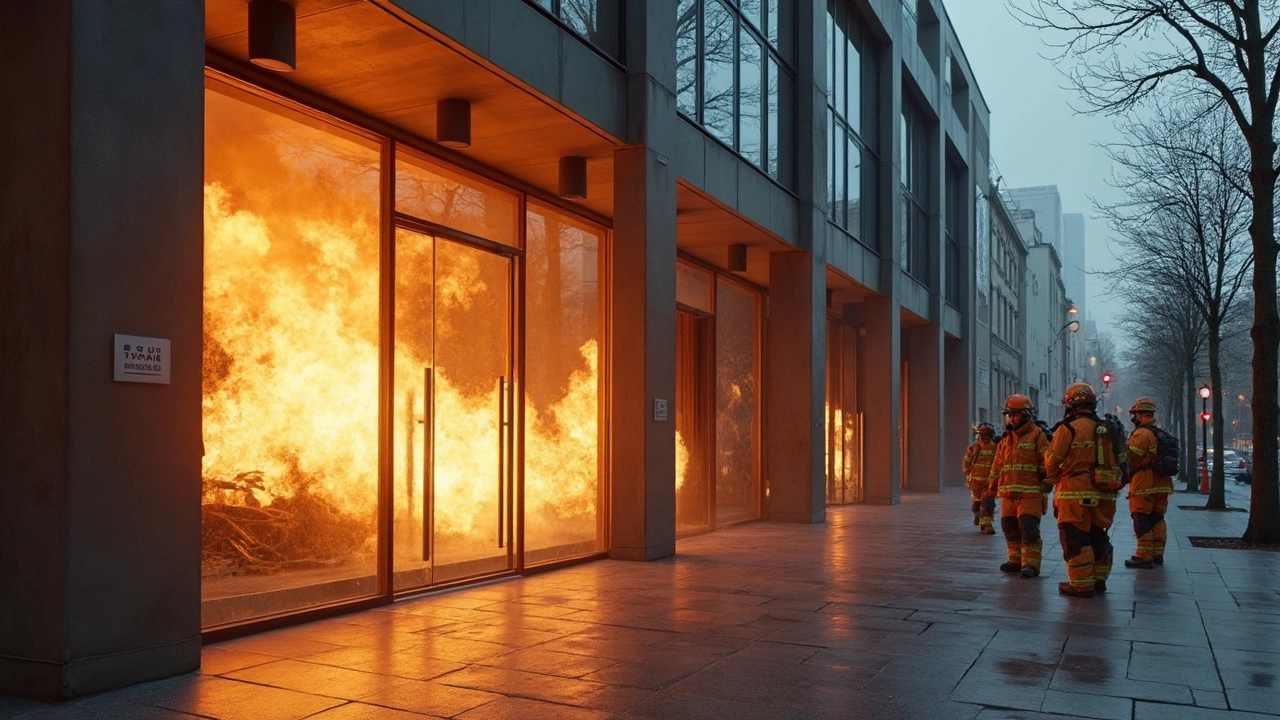Fire Codes Explained: What Every Homeowner Should Know
Ever wondered what a "fire code" really means? In plain English, it’s a set of rules that tell you how to keep a building safe from fire. The rules cover everything from the material of your garage door to the way a kitchen is ventilated. If you ignore them, you risk fines, higher insurance premiums, or worse – a dangerous situation.
Most UK fire codes are written by the government and enforced by local councils. They apply to new builds, renovations, and even older homes that get major upgrades. The good news? The basics are easy to follow, and you can often check compliance yourself before calling a professional.
Why Fire Codes Matter for Garage Doors
Garage doors are often an overlooked entry point for fire. A door that doesn’t close properly can let flames and smoke spread to the rest of the house in minutes. Fire codes require:
- Self‑closing hardware that shuts the door after a power loss.
- Materials that resist burning for at least 30 minutes.
- Clearance around the door frame so smoke detectors can work.
When you’re buying a new door or repairing an old one, ask the installer if the product meets “BS 6266” – that’s the British standard for fire‑rated doors. Most reputable garages will have the paperwork to prove it.
Quick Checklist for Homeowners
Use this short list to see if your home is on the right track:
- Check the door hardware. Is the garage door equipped with an automatic close feature?
- Look for fire‑rated labels. The door should have a tag showing the fire resistance rating.
- Test smoke alarms. Make sure there’s an alarm inside the garage and at least one on each floor.
- Clear escape routes. Keep pathways free of boxes and clutter so people can get out quickly.
- Know the local rules. Contact your council or check their website for any extra requirements in your area.
Running through these steps takes less than ten minutes but can save a lot of trouble later.
If you’re doing a big renovation, the fire code checklist expands. You’ll need to consider fire doors for internal walls, proper ventilation for kitchens, and safe storage of flammable items. A qualified builder or fire safety consultant can run a full audit and point out any gaps.
Remember, fire codes are not just about avoiding penalties. They’re about keeping your family safe and protecting your property’s value. Simple actions—like swapping a regular garage door for a fire‑rated one—make a real difference.
Got a question about a specific fire code requirement? Drop a comment or call a local fire safety professional. The right info is only a phone call away, and staying compliant is easier than you think.

Fire-Resistant Construction Types: Which Really Holds Up?
May 2, 2025, Posted by Damon Blackwood
This article explains which types of construction are the most fire-resistant for commercial buildings. It breaks down the different categories, lays out how materials and methods matter, and highlights real-world examples and regulations. You'll find practical tips for making your building safer and more compliant. If you've ever wondered what actually works in a fire, this one’s for you.
MORESEARCH HERE
Categories
TAGS
- foundation repair
- commercial construction
- construction
- new builds
- home improvement
- home renovation
- bathroom renovation
- construction materials
- residential construction
- building codes
- home foundation
- building types
- renovation tips
- construction differences
- contractor
- building materials
- foundation cracks
- home construction
- architectural services
- building contractor